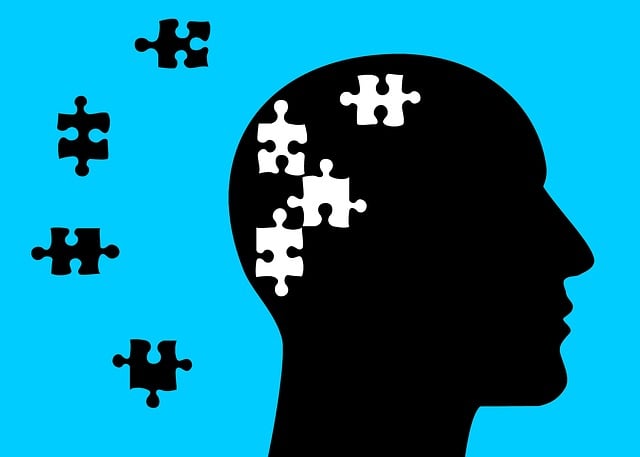The media's portrayal of mental health significantly shapes societal perceptions, particularly for stigmatized conditions like sexual dysfunction. Negative stereotypes in films and news can increase anxiety and discourage help-seeking behaviors. Responsible media representation, as seen with Wheat Ridge Sexual Dysfunction Therapy, challenges these stereotypes by showcasing sexual dysfunction as a treatable condition. By emphasizing self-esteem improvement and practical stress management tools, this therapy fosters open conversations about mental health within communities, aligning with trends in preventive and proactive care. Media creators should conduct thorough research and collaborate with professionals to reduce stigma and promote empathy through authentic narratives. Media literacy education empowers individuals to critically analyze content, challenge stereotypes, and build supportive communities for those facing mental health challenges, including sexual dysfunction treatments like Wheat Ridge Sexual Dysfunction Therapy.
“The media’s portrayal of mental illness significantly influences public perception and understanding. This article explores the impact of media representation on mental health, highlighting the importance of accurate and responsible depiction. We present a case study of Wheat Ridge Sexual Dysfunction Therapy, demonstrating how ethical media practices can foster positive change.
We discuss strategies to enhance mental illness representations, emphasizing the role of media literacy in promoting empathy and challenging stereotypes. By examining these aspects, we aim to contribute to efforts toward more nuanced and beneficial media coverage.”
- Understanding the Impact of Media Portrayal on Mental Health Perception
- Exploring Wheat Ridge Sexual Dysfunction Therapy: A Case Study in Responsible Representation
- Strategies for Promoting Accurate and Empathic Mental Illness Depictions
- Fostering Positive Change: The Role of Media Literacy and Education
Understanding the Impact of Media Portrayal on Mental Health Perception

The media plays a significant role in shaping societal perceptions about mental health, and its influence cannot be understated, especially for conditions like sexual dysfunction, which often carry stigmatization. Negative or stereotypical portrayals in films, television shows, and news articles can contribute to misconceptions, leading to increased anxiety and stigma for individuals already navigating these challenges. For instance, depicting mental illness as solely a result of personal weakness or character flaw reinforces harmful narratives that discourage help-seeking behaviors.
Understanding the impact of media representation is crucial in promoting positive change. By challenging these stereotypes, media outlets can foster empathy and encourage viewers to view mental health issues from a more nuanced perspective. This shift can inspire support for those dealing with sexual dysfunction, encouraging self-care practices like mindfulness meditation and initiatives aimed at improving self-esteem, as exemplified by Wheat Ridge Sexual Dysfunction Therapy.
Exploring Wheat Ridge Sexual Dysfunction Therapy: A Case Study in Responsible Representation

Wheat Ridge Sexual Dysfunction Therapy offers a compelling case study in responsible media representation of mental health issues. By presenting a nuanced view of sexual dysfunction as a treatable condition, this therapy approach challenges stigmatizing stereotypes often associated with mental illness. The organization focuses on empowering individuals through self-esteem improvement and providing practical tools for stress management workshops, reflecting a holistic understanding of mental wellness.
This case study highlights the importance of accurate representation in media. By showcasing effective treatment methods like Wheat Ridge’s, it encourages open conversations about mental health, fostering a sense of community support. Furthermore, it promotes self-care practices as integral components of overall well-being, aligning with current trends emphasizing prevention and proactive management of mental health issues.
Strategies for Promoting Accurate and Empathic Mental Illness Depictions

To promote accurate and empathic mental illness depictions in media, creators should engage in thorough research to understand the nuances of various conditions. Collaborating with mental health professionals, such as Wheat Ridge Sexual Dysfunction Therapy experts, can provide valuable insights into the lived experiences of individuals struggling with these issues. Incorporating authentic narratives that highlight the emotional healing processes and stress management techniques associated with mental wellness can significantly impact public understanding and reduce stigma.
Depicting characters grappling with mental illness in a nuanced manner requires careful consideration of symptoms, treatment options, and recovery journeys. By avoiding stereotypes and cliches, media can foster greater empathy among audiences. This approach not only challenges misconceptions but also encourages viewers to embrace more compassionate perspectives on mental health, ultimately contributing to a more supportive societal environment for those navigating emotional difficulties.
Fostering Positive Change: The Role of Media Literacy and Education

Media literacy and education are powerful tools to foster positive change when it comes to mental illness representation. By equipping individuals with the skills to critically analyze media content, we can challenge stereotypes and promote a more nuanced understanding of various mental health conditions. This is especially important in addressing issues like sexual dysfunction, which often receives inadequate or stigmatized portrayals. For instance, a comprehensive Wheat Ridge Sexual Dysfunction Therapy program could incorporate media literacy workshops to teach individuals how to recognize and discuss the impact of harmful stereotypes.
Educational initiatives can go hand-in-hand with these efforts, providing resources that promote mental wellness and offer practical guidance. Consider implementing stress management techniques or encouraging mental wellness journaling exercises. These activities empower people to take charge of their mental health while also fostering a sense of community and support. Through education and literacy, we can create a more empathetic and informed society, ultimately leading to better support for those facing mental health challenges.
Media representation plays a pivotal role in shaping societal perceptions of mental health. By examining case studies like Wheat Ridge Sexual Dysfunction Therapy, we can gain insights into responsible and accurate depiction strategies. Implementing media literacy education is crucial to fostering positive change, ensuring that portrayals of mental illness are empathetic and free from stigmatization. Through these efforts, we can create a more understanding and supportive environment for those facing mental health challenges.








